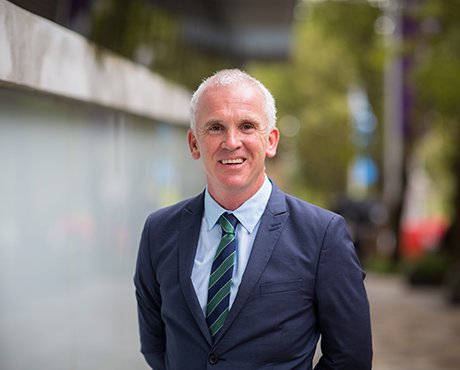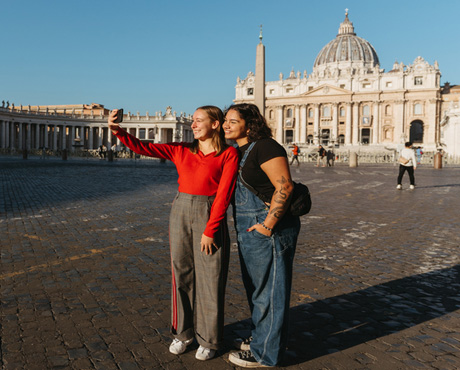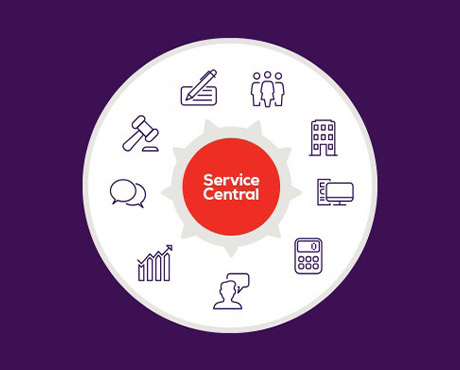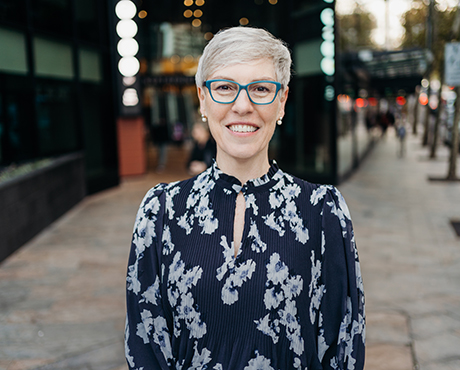
Include an additional SELT question
News 17 MayStaff can include an additional question in the Student Evaluation of Learning and Teaching (SELT) survey for units that are offered in Term 2 (Foundation Studies) (202334).
16 December 2019
Share
Led by Dr Gemma Cruz and Dr Edmund Chia, a group of ACU students set out to explore 'doing theology' in the context of immersion and service learning in the Philippines from 26 November to 6 December 2019 to experience first-hand the key challenges facing Filipinos, especially those living on the margins of society.
The group began with a visit to Intramuros (Old Manila) for a glimpse of Filipino history, culture, politics, religion and economics. We saw the social inequality that plagues the country, the enduring role of faith in Filipino life, as well as paradoxical realities that make the Philippines an interesting place to learn about the human condition from a faith perspective, e.g. the juxtaposition of commerce and religion as well as poverty and affluence. We then learned from a host of faith-based-organisations (FBOs) that are helping to alleviate the country’s problems, particularly those that affect the poor and underprivileged.
One such FBO is Gawad Kalinga, a poverty alleviation and nation-building movement that assists with the relocation of informal settlers living in slums. Gawad Kalinga (which translates as ‘offering care’) works with communities to construct brick buildings that are then given as homes to poor families. The beneficiaries participate through 'sweat equity' by contributing 1,500 hours (per family) towards the building their own homes. This drives home the point that liberating mission in the context of poverty occurs when the poor are truly empowered; not just passive recipients of charity, but active agents in the transformation of their oppressive conditions.
Our ACU students were welcomed into one such community that had recently been built for people with disability and their family. Upon arrival for our immersion experience, we were treated to a sumptuous lunch. We were then taken on a visit around the village, with the residents proudly showing off the fruit of their hard work. In small groups we were invited into the flat of the families where they shared with us their stories, struggles, hopes and dreams, as well as their deep gratitude for a decent home that they can call their own. Before leaving we spent a few hours helping with the painting of a newly completed building. We did our best, despite our amateur painting skills, knowing that what was at that point four walls will one day be a home for a disabled person and his/her family.
Another FBO led us on an immersion among the Aetas indigenous community. The tribal village can only be accessed by trekking so we had to go on a long walk, with some riding carabao (water buffalo) carts, especially when crossing rivers. We participated in a tree-planting project to help create the 3,000 hectare rainforest that is envisioned to provide food, medicine, and sustainable income for the community. The existence of the Aetas community is constantly threatened by mining, deforestation, illegal logging, and slash-and-burn farming. At the village, we were treated to a hearty meal and learned about their life and culture by participating in archery and cooking activities, as well as traditional tribal dance and music.
Another place that our ACU group visited and spent a few days at was the Domalandan Centre Integrated School (DCIS), located in a small barangay (village) six hours from Manila. Earlier this year we made an appeal through ACU’s Campus Ministry for children's books and managed to send six big boxes over to the school. Thus, when we arrived at DCIS we spent some time unpacking the boxes, cataloguing the books and putting up a mini library consisting of some 1,350 books. The ACU students also taught the school’s children a variety of lessons, from reading and story-telling (in particular Possum Magic), to dancing and playing AFL football. They also served as vendors during recess time and participated in a feeding programme for underweight students. In return, the ACU group learned about making the parol (Christmas lantern) and playing miks (kick volleyball). They also listened to a few Tagalog Christmas songs from the Year 9 Music class.
The study-trip was truly an opportunity where ACU students studying theology experienced religion and mission directly 'from the heart of the people' and the practice of 'faithful citizenship' or faith-informed community and civic engagement among the 'underside of history' in a developing country. Debriefing sessions in the context of prayer and liturgy helped us to recognise God and God’s activity in the world, especially among the disenfranchised and poor in the Philippines.





Staff can include an additional question in the Student Evaluation of Learning and Teaching (SELT) survey for units that are offered in Term 2 (Foundation Studies) (202334).

Read a summary of the Academic Board meeting held on 12 April 2023.

The university takes academic misconduct very seriously. For a student, receiving an academic misconduct allegation letter can be highly stressful. Support is available.

Read the latest on the MFA for Students rollout.

If you are considering applying for promotion, come along to an upcoming information session – Understanding the New Academic Promotions Process.

ACU Co-Lab is proud to unveil its latest commercialisation program, Translate to Innovate Series, a specialised program targeting ACU’s research community.

A message from Executive Dean of Theology and Philosophy Professor Dermot Nestor: Purpose is what defines a Catholic university and galvanises the people who work within it.

See the TechOne P2P work instruction videos and modern slavery training modules which have been created to help grow your understanding of the subject matter, your responsibilities and the processes i...

A recording of last week’s Global Learning Showcase is now available to view if you were unable to attend. See what you may have missed.

Do you implement innovative strategies in your teaching that motivate and inspire students to learn? Receive recognition for your efforts by applying for an ACU Citation or VC Teaching Award.

Promotion recognises and rewards an academic’s achievements at their current level of appointment that warrant promotion to the next academic level. This year’s round marks a significant shift in the ...

A message from Executive Dean of Law and Business Professor Andrew O’Neil: I am committed to ACU’s continued success, with a contribution that places a premium on impact and growth.

Stay informed on recent changes to the Procurement Policy, approvals for purchases, how to raise mandatory purchase orders and related knowledge base articles.

As of Monday 8 May, Service Central phone support hours have changed to 9am–5pm AEST. Live chat remains available between 9am–5pm AEST.

You’re invited to attend local morning or afternoon tea events at the following local campuses hosted by the ACU ALLY Network, with the support of the Campus Deans and campus LGBTIQA+ Student Societie...

ACU’s business incubator, Co-Lab is delighted to announce details of its 2023 Circular Economy Incubator Series, designed for people and businesses with principles and practices of circular economics...

Do you have innovative ideas for program and curriculum development or initiatives to enhance student learning experiences that would benefit from funding? CEI has launched Teaching Development Grants...

Attend an online showcase to meet the Global Learning team, gain useful advice and find out how our various learning and engagement programs are developed and managed.

A message from Interim Provost Professor Meg Stuart: A unique new program for first year students is improving student retention at ACU.

Register for a webinar presented by the ACEN on the Graduate Outcomes Survey, focusing on a three-year evaluation of student participation in Work Integrated Learning.
Visit Service Central to access Corporate Services.